DIY Skincare: Natural Face Masks for Glowing Skin
DIY Skincare: Natural Face Masks for Glowing Skin affordable DIY face masks using natural ingredients for radiant, healthy skin at home

In a world where skincare routines are often dominated by expensive products and complex regimens, DIY skincare offers a refreshing and natural alternative. Natural face masks for glowing skin have gained immense popularity for their simplicity, affordability, and effectiveness. These masks, crafted from ingredients found in your kitchen, provide a holistic approach to skincare, free from harsh chemicals and synthetic additives. Whether you’re looking to combat dryness, reduce acne, or achieve a radiant glow, DIY skincare allows you to customize treatments tailored to your skin’s unique needs. This article delves into the benefits of natural face masks, provides detailed recipes, and offers tips to help you achieve glowing skin effortlessly.
The appeal of DIY skincare lies in its accessibility and versatility. Ingredients like honey, turmeric, yogurt, and avocado are not only nourishing but also packed with vitamins, minerals, and antioxidants that promote healthy skin. By incorporating these natural elements into your skincare routine, you can address various skin concerns while embracing a sustainable and eco-friendly approach. Let’s explore how you can harness the power of natural face masks to achieve glowing, healthy skin.
The Benefits of DIY Skincare
DIY skincare has become a go-to solution for individuals seeking a more natural and personalized approach to beauty. One of the most significant advantages of natural face masks is the ability to control the ingredients that come into contact with your skin. Many commercial skincare products contain synthetic chemicals, preservatives, and fragrances that can irritate sensitive skin or cause long-term damage. By creating your own face masks, you can ensure that only wholesome, natural ingredients are used, reducing the risk of adverse reactions and allowing you to address specific skin concerns effectively.
Natural ingredients are rich in nutrients that benefit the skin in numerous ways. For instance, honey is a natural humectant, meaning it draws moisture into the skin, making it an excellent choice for hydration. Turmeric, with its anti-inflammatory and antibacterial properties, is ideal for reducing acne and brightening the skin. Yogurt contains lactic acid, which gently exfoliates and promotes cell turnover, while avocado is packed with healthy fats that nourish and soften the skin. These ingredients work synergistically to improve skin texture, tone, and overall health.
Another compelling reason to embrace DIY skincare is its cost-effectiveness. High-end skincare products can be prohibitively expensive, and their results are not always guaranteed. Natural face masks, on the other hand, utilize ingredients that are often already in your pantry, making them a budget-friendly alternative. This accessibility allows you to experiment with different recipes and find the perfect combination for your skin without breaking the bank.
Sustainability is another key benefit of DIY skincare. The beauty industry generates significant waste through plastic packaging and single-use products. By making your own face masks, you can reduce your environmental footprint and contribute to a more sustainable lifestyle. Additionally, DIY skincare encourages mindfulness and self-care, as the process of preparing and applying a mask can be a therapeutic and relaxing experience.
Natural Face Mask Recipes for Glowing Skin
Honey and Oatmeal Mask for Hydration
Dry and sensitive skin can benefit immensely from a honey and oatmeal mask. Honey is a natural humectant that locks in moisture, while oatmeal soothes irritation and gently exfoliates the skin. To create this mask, combine two tablespoons of finely ground oatmeal with one tablespoon of raw honey. Add a teaspoon of water to achieve a smooth consistency. Apply the mixture to your face, leave it on for 15-20 minutes, and rinse with lukewarm water. This mask will leave your skin feeling soft, hydrated, and refreshed.
Turmeric and Yogurt Mask for Brightening
Turmeric is renowned for its brightening and anti-inflammatory properties, making it an excellent ingredient for achieving a radiant complexion. When combined with yogurt, which contains lactic acid, it creates a mask that exfoliates and evens out skin tone. Mix one teaspoon of turmeric powder with two tablespoons of plain yogurt to form a smooth paste. Apply the mask to your face and leave it on for 10-15 minutes. Be cautious with turmeric, as it can stain light-colored fabrics and skin. Rinse thoroughly and follow up with a moisturizer to lock in the benefits.
Avocado and Banana Mask for Nourishment
Avocado and banana are both rich in vitamins and healthy fats that nourish and soften the skin. This mask is particularly beneficial for dry or mature skin, as it deeply hydrates and restores elasticity. Mash half an avocado and half a banana together until smooth. Apply the mixture to your face and leave it on for 15-20 minutes. Rinse with lukewarm water to reveal soft, supple skin.
Clay and Apple Cider Vinegar Mask for Detoxification
Clay masks are excellent for drawing out impurities and excess oil from the skin, making them ideal for oily or acne-prone skin. Bentonite clay, in particular, is known for its detoxifying properties. Mix one tablespoon of bentonite clay with one tablespoon of apple cider vinegar to create a smooth paste. Apply the mask to your face, avoiding the eye area, and leave it on until it dries. Rinse with warm water and follow up with a hydrating moisturizer to restore balance to your skin.
Aloe Vera and Cucumber Mask for Soothing
Aloe vera and cucumber are both cooling and soothing ingredients, making this mask perfect for irritated or sunburned skin. Blend half a cucumber with two tablespoons of aloe vera gel until smooth. Apply the mixture to your face and leave it on for 15-20 minutes. Rinse with cool water to reveal calm, refreshed skin. This mask is especially beneficial during the summer months or after prolonged sun exposure.
Tips for Maximizing the Effectiveness of DIY Face Masks
To get the most out of your DIY face masks, it’s essential to follow a few simple guidelines. First, always perform a patch test before applying any new ingredient to your face. This will help you avoid potential allergic reactions or irritation. Second, use fresh, high-quality ingredients to ensure the best results. Avoid using expired or spoiled products, as they may not be effective and could harm your skin.
Cleansing your skin before applying a mask is crucial, as it allows the active ingredients to penetrate deeply and work more effectively. Use a gentle cleanser to remove dirt, oil, and makeup, and pat your skin dry with a clean towel. Consistency is also key when it comes to DIY skincare. For optimal results, incorporate your chosen mask into your routine 1-2 times per week.
After rinsing off your mask, always follow up with a moisturizer to lock in hydration and keep your skin soft. If you’re using a mask with exfoliating properties, such as the turmeric and yogurt mask, be sure to apply sunscreen before heading outdoors, as exfoliation can make your skin more sensitive to the sun.
Read More: How to Use Essential Oils for Common Ailments
Conclusion
DIY skincare, particularly natural face masks, offers a simple, affordable, and effective way to achieve glowing skin. By harnessing the power of ingredients like honey, turmeric, avocado, and yogurt, you can create customized treatments that address your specific skin concerns while nourishing and rejuvenating your complexion. The benefits of DIY skincare extend beyond just glowing skin; it’s also an eco-friendly and sustainable approach to beauty that allows you to take control of what you put on your skin.
Incorporating natural face masks into your skincare routine can transform your skin and boost your confidence. Whether you’re looking to hydrate, brighten, or detoxify your skin, there’s a DIY mask for you. So, the next time you’re in the kitchen, consider whipping up a natural face mask and treating your skin to the care it deserves.
FAQs
Can I use DIY face masks every day?
It’s best to use DIY face masks 1-2 times per week to avoid over-exfoliating or irritating your skin.
How long should I leave a DIY face mask on?
Most DIY face masks should be left on for 10-20 minutes, depending on the ingredients and your skin type.
Can I store leftover DIY face masks?
It’s recommended to use DIY face masks immediately, as fresh ingredients can spoil quickly.
Are DIY face masks suitable for all skin types?
Yes, DIY face masks can be customized to suit all skin types, but always patch test new ingredients first.
Can I use essential oils in DIY face masks?
Yes, but use them sparingly and always dilute them with a carrier oil to avoid irritation.


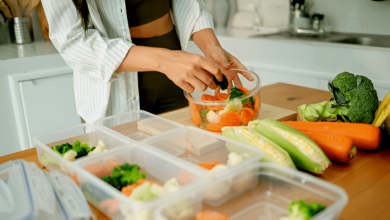
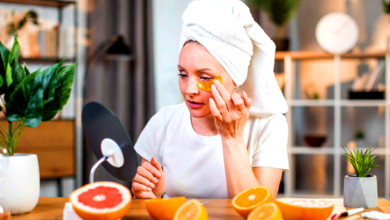


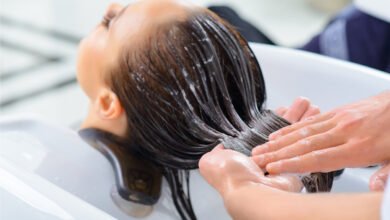


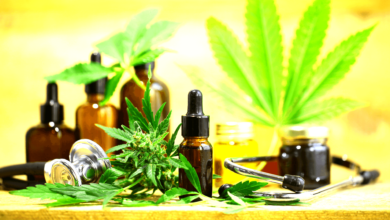
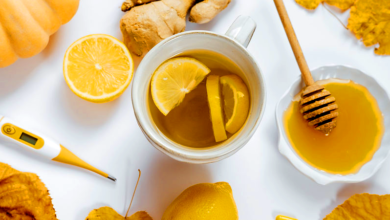

One Comment